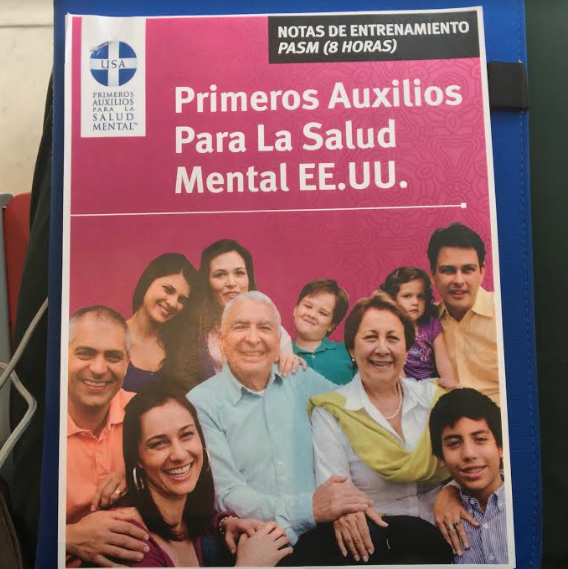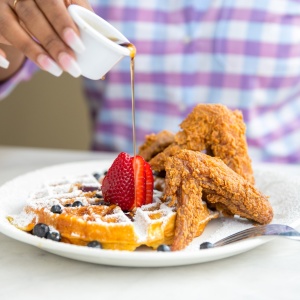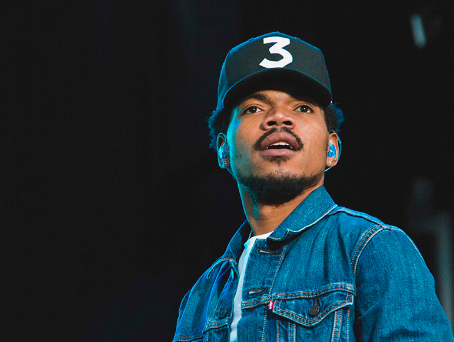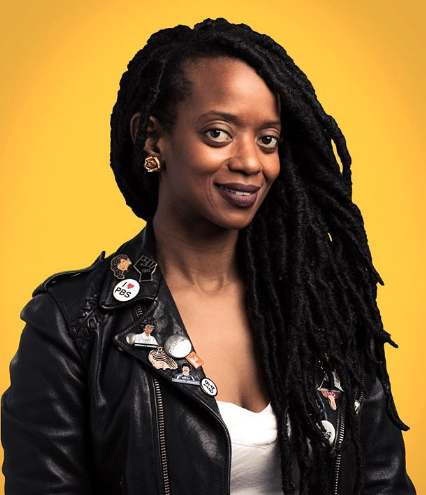Welcome to another round of Mental Health Monday, your weekly dose of stories, resources, and motivation for your everyday life. Last week, Verdell A. Wright explored the impact of prayer on the mental health of Black Christians and you should definitely read it.
If you're near NYC, join Alex at WeWork Harlem on Thursday November 16 for Wine & Words, an evening of storytelling, group writing activities, and candid conversation around mental and emotional wellness. It's the first official event for GetSomeJoy, his multimedia initiative dedicated to spreading joy and providing wellness resources to Black and brown folks—the historically marginalized and underserved—via dope and engaging written and video content, an online wellness resource hub, Mental Health First Aid trainings, and opportunities for fellowship. ThriveNYC, New York City's comprehensive mental wellness program, will be present, distributing information and resources. Get more info and RSVP here.
AND.
November 9 - 12, CHICAGO, IL - Black Mental Wellness Weekend (INFO + Schedule)
This is a series of events (panel discussions, movie and documentary sceenings, workshops, etc.) that focus on mental wellness through community building, inspiration, and expression through the arts on the south and west sides of Chicago.
Black Mental Wellness Weekend's theme is Build. Inspire. Express. There will be events in several locations on the South and West sides of Chicago that engage people in activities, lively discussion, and fun all focused on mental wellness. There will be events for ages 14+.
Carruthers Center for Inner City Studies 700 E Oakwood Blvd, Chicago, Illinois 60653
AND.
November 18, 3:30 - 6PM, DALLAS, TX - Mental Health & The Role Of The Black Church (INFO)
It's an opportunity for social service providers, community advocates, clergy and citizens to come together and discuss ways to approach a multitude of issues including, relationship issues, social awareness and prevention issues, mental and emotional health issues.
THIS WEEK'S GOODNESS:
"Black-ish Grandma Jenifer Lewis Opens Up About Her Battle with Sex Addiction and Bipolar Disorder" [People]
"Why Finding a Therapist Can Be Especially Hard for Black Women" by Jihan Thompson [Oprah]
While African Americans account for just about 14 percent of the U.S. population, they make up over 16 percent of those affected by anxiety, depression, and other mental illnesses. But many never get the help they need; only 8.6 percent of all black Americans saw a therapist, took medication, or used another kind of mental health service between 2008 and 2012, compared with 16.6 percent of white Americans, according to a report from the federal Substance Abuse and Mental Health Services Administration.
"Shirtless and looking for my co-stars at the station - lawyer describes moment he experienced very public 'Truman Show' style breakdown" by Claire Carter [Mirror UK]
He was found by two policemen, barefoot in just his shorts sobbing on a train station platform wondering desperately which actors to follow. He was diagnosed with bipolar disorder, a condition which has seen him hospitalised after unpredictable breakdowns.
"When I first got out of hospital and realised what had happened I realised I had just lost my mind, " said Zack, who now works as a writer.
"Having A Mental Illness Is So Much Different When You're Black" by Kiana Cozier [Oddysey]
Being anxious while black is an incredibly overwhelming experience. We feel as though society has no place for us. We feel as if we’re disappointments to our elders who fought for our spot in this country. We feel as if we’re falling behind on the road to defy the odds of systematic and social oppression.
"How to Know When to Take a Mental Health Day" by Amy Morin [Psychology Today]
2. When you’ve been neglecting yourself. Just like electronic devices need recharging, it's important to take time to charge your own batteries. A little alone time or an opportunity to practice some self-care can help you perform better.
"The Truth About Black Teen Suicide" by Dwan "Telly" Carter [Healthy Place]
My teacher responded to a poem a student had written about his suicide attempt. The room fell silent. Everyone else in the room was Black but her. "I mean, I didn't think they had serious problems," she added.
Sitting there in the classroom, I thought that had to be the most ignorant comment I had ever heard in my life. Now that slavery was abolished, the Civil Rights movement over and some African-Americans upwardly mobile, everything was alright? Blacks did not have any more problems? Wrong!
"Growing up with Depression in the African-American Community" by Rev. Jacqui Lewis, Ph.D [EBONY]
When John came out to his traditional southern family as teen, he was literally put out. He was homeless in New York, living in his car, or couch surfing in order to survive. In 2012, he was diagnosed with depression and anxiety.
“It was one of the most difficult times of my life. Up until that point I was faking happiness and contentment,” John said. “I began to share my story for the first time after I was diagnosed. Experiences of abuse, homophobia, racism, poverty and homelessness were all parts of my story that I had suppressed and now faced head on. The more I told my story, the more liberated I felt.”
If you have a mental health resource, event, or piece of content we should know about, step into our office. You da bess.

































